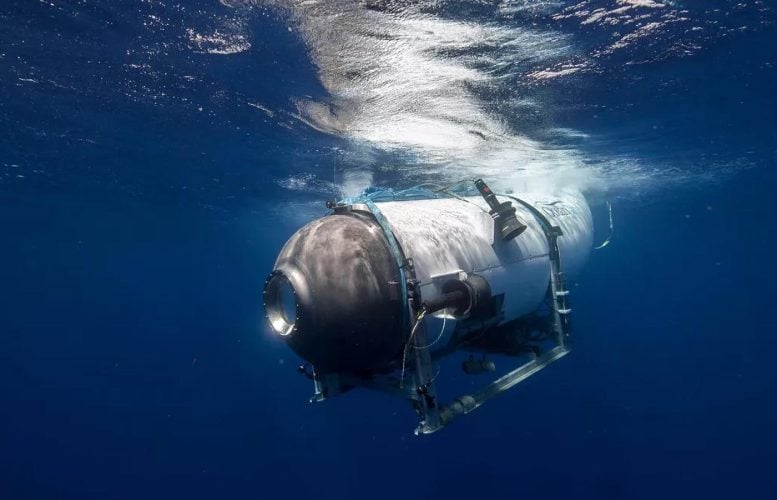
The discovery of the imploded submersible “Titan” has prompted questions regarding OceanGate Expeditions’ liability. While jurisdictional issues and waivers signed by passengers may hinder a lawsuit, misrepresentation of safety could offer a potential legal route. Yet, the company’s possible financial demise following the disaster could render lawsuits moot.
After days of searching, the U.S. Coast Guard announced on June 22 that the debris from the missing submersible “Titan” was found and was consistent with “a catastrophic implosion of the vessel.”
With attention turning to whether the company behind the vessel could be held liable for the tragedy, a Northeastern University law expert and former Coast Guard official say a lawsuit faces a number of challenges.
“A lawsuit is unlikely unless the company misrepresented the safety of the submersible,” says Richard Daynard, distinguished professor at Northeastern University School of Law. “Otherwise, this is a classic example of ‘assumption of the risk.’”
Jurisdiction Issues in International Waters
Steve Flynn, a retired Coast Guard officer and director of Northeastern’s Global Resilience Institute as well as a professor of political science and affiliated with the Civil and Environmental Engineering Department, says that a lawsuit is “probably inevitable.”
However, he said that even establishing jurisdiction in the case may be difficult.
“At the end here, when in international waters and in this case, underneath it, I think people are still surprised to the degree that there are spaces in our world where jurisdiction is confused and rules and requirements may not be operated,” Flynn says. “International waters represent that space.”
The “Titan” submerged Sunday morning, and its support vessel lost contact with it about an hour and 45 minutes later, according to the Coast Guard. Five people were aboard the craft, which was launched to survey the wreckage of the ocean liner Titanic.
The missing submersible set off an international search-and-rescue mission that captivated the world’s attention. Then on the afternoon of June 22, however, the Coast Guard said that debris found earlier that morning was from the Titan and “was consistent with a catastrophic implosion of the vessel.”
OceanGate Expeditions, a private company that organizes and runs trips on the Titan, said in a statement that same afternoon that it believed the passengers “have sadly been lost.”
Is OceanGate likely to face a lawsuit over the tragedy?
Such a suit would face challenges.
Passengers, who in the past paid $250,000 for a spot in the vessel, sign a waiver that a former passenger says mentioned the risk of death three times on the first page alone.
“You sign a massive waiver that lists one way after another that you could die on the trip,” former Titan passenger Mike Reiss told the BBC. “So nobody who’s in this situation was caught off guard. You all know what you are getting into.”
The Key Question: Did OceanGate Misrepresent Safety?
Daynard says that with such a waiver, a plaintiff would have to prove OceanGate acted recklessly or was grossly negligent in its actions. But the dangerousness of the activity does not establish negligence.
There is a caveat, however.
Daynard says that if the company misrepresented the safety of the submersible to its passengers, then there might be grounds for a case.
OceanGate CEO Stockton Rush, who was also onboard the submersible, lamented in a 2019 Smithsonian Magazine article that passenger-vessel regulations were stifling innovation.
“There hasn’t been an injury in the commercial sub industry in over 35 years. It’s obscenely safe, because they have all these regulations,” Rush told the magazine. “But it also hasn’t innovated or grown—because they have all these regulations.”
In fact, in a 2019 online statement entitled ‘Why Isn’t Titan Classified,’ OceanGate said its submersible had features that were outside pre-existing standards and thus wasn’t classed according to the standard regulatory process.
“By definition, innovation is outside of an already accepted system,” the statement said. “However, this does not mean that OceanGate does meet standards where they apply, but it does mean that innovation often falls outside of the existing industry paradigm.”
Moreover, the former director of marine operations at OceanGate, David Lochridge, said in a 2018 lawsuit that he warned the company about “safety and quality control issues,” but was ignored and then fired.
Legal Experts Weigh In on the Likelihood of a Lawsuit
But asked about the likelihood of a presumptive lawsuit succeeding, Daynard says, “lawsuits are not generally brought unless there’s a reasonable chance of success.”
“A lawsuit is unlikely unless the company misrepresented the safety of the submersible.”
Richard Daynard, distinguished professor at Northeastern University School of Law
Northeastern law professor Sonia Rolland, who described the liability questions as “complex,” said that filing a lawsuit might be unlikely for another reason.
“Even assuming that the legal questions regarding liability can be disentangled, the issues might be moot if the reputational hit taken by the exploration company spells its financial demise,” Rolland says. “There is no point in suing a company that does not have financial resources.”
Read More:
- Physicist Explains How Titan’s “Catastrophic Implosion” Happened – And What It Meant for Those on Board
- Physicist Explains Why the Titan Submersible’s Carbon Fiber Was Ineffective
- Why Would Anyone Get in a Submersible and Travel 2½ Miles Deep Into the Ocean?
Never miss a breakthrough: Join the SciTechDaily newsletter.